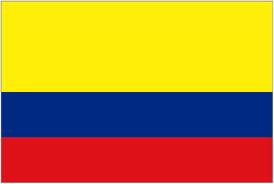 [Joint Letter Signed by 122 Experts – PDF in English and Spanish, with Signatures] Dear President Santos: We are lawyers, academics and other experts specializing in fields including intellectual property, trade and health, writing to affirm that international law and policy support Colombia´s right to issue compulsory licenses on patents in order to promote public interests including access to affordable medicines.
[Joint Letter Signed by 122 Experts – PDF in English and Spanish, with Signatures] Dear President Santos: We are lawyers, academics and other experts specializing in fields including intellectual property, trade and health, writing to affirm that international law and policy support Colombia´s right to issue compulsory licenses on patents in order to promote public interests including access to affordable medicines.
Colombia´s Ministry of Health and Social Protection has proposed to declare access to the cancer medicine imatinib under competitive conditions to be a matter of public interest. A public interest declaration should lead to the grant of a compulsory license on a patent held by Novartis, facilitating generic competition and reducing prices. We encourage your administration, the Ministry of Health and the Superintendency of Industry and Trade to proceed with the public interest declaration.
Recent media reports suggest that staff for the U.S. Senate Finance Committee and potentially representatives of the U.S. government may have communicated incorrect beliefs about compulsory licensing to their Colombian counterparts.[1] If the reports are accurate, those officials have acted inappropriately, and contravened U.S. government policy, which supports trading partners’ rights to issue compulsory licenses. We condemn any pressure levied against Colombia for its use of lawful policies such as compulsory licensing to promote public health.
Article 31 of the World Trade Organization’s Agreement on Trade-Related Aspects of Intellectual Property (WTO’s TRIPS) permits all WTO members, including Colombia, to issue compulsory licenses at any time on grounds of their choosing[2]. The only compensation due to patent-holders in instances of compulsory licensing is a reasonable royalty, which governments may determine at their discretion[3].
The WTO’s Declaration on the TRIPS Agreement and Public Health affirms this interpretation of Article 31 and its importance to health.[4] The “Doha Declaration” explicitly recognizes the impact of intellectual property on medicine prices and states that countries’ patent obligations under WTO rules “should be interpreted and implemented in a manner supportive of WTO members’ right to protect public health and, in particular, to promote access to medicines for all.”
The issuance of a compulsory license on imatinib is entirely consistent with the terms of trade and investment agreements to which Colombia is a party.[5] The U.S. “May 10th Agreement” of 2007, for example, expressly incorporated certain public health safeguards in the U.S.-Colombia Trade Promotion Agreement and preserved Colombia’s right to issue licenses for patented inventions.
High prices for any important medicine impose a burden on the public health system responsible for providing it, and lead to the rationing of treatment and other health services. When a pharmaceutical company uses a patent to exclude competition, it can charge much higher prices.
A recent report by Colombia’s Ministry of Health and Social Protection specifies considerable predicted cost savings through a compulsory license for imatinib.[6] The report of the ministry’s Technical Committee for the Public Interest Declaration states:
…The impact on health system financing of only a single manufacturer supplying imatinib in the market is important. Additionally, prices of Glivec, despite being subject to controls, are still very high compared with generics, which have been progressively leaving the market with the grant of the patent. Direct price controls …will never match the results achieved by competition in the market. Without a doubt, the best way to reduce prices is competition.
Novartis has rejected the Colombian government’s offer to negotiate a price reduction for imatinib.
Issuing a compulsory license does not expropriate the property rights of the patent holder. Rather, the right of a government to authorize other uses of a patented invention is embedded and reserved in the grant of a patent. Furthermore, a license does not prevent the patent holder from continuing to sell its product, prohibit non-licensed uses of the invention, or prohibit non-licensed parties from using the invention.
We hope this letter will support Colombia’s ongoing efforts to increase access to affordable medicines and put to rest any concerns regarding the international legitimacy of compulsory licensing. Compulsory licensing is a key tool for protecting the financial stability of health systems and ensuring access to medicines and health services for all.
Click here for the PDF, in English and Spanish, with signatures.




